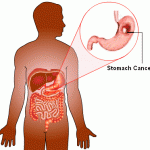| Print article | This entry was posted by Jermel Watkins on January 6, 2010 at 4:47 pm, and is filed under Your Genes, Your Health. Follow any responses to this post through RSS 2.0. You can skip to the end and leave a response. Pinging is currently not allowed. |
- 2009 Alzheimer's autism barcoding biology brain Cancer disease dna drugs Education Epigenetics eugenics Evolution gene genes gene therapy genetic disease genetics Genome genomics heritability Inheritance medicine Medicines mutation mutations neurons Neuroscience Nobel Nobel prize Pharmacogenomics Prevention Research schizophrenia Sequencing sleep sterilization teaching technology telomerase telomere traits treatment ygyh
- June 2014 (1)
- January 2014 (1)
- January 2013 (1)
- November 2012 (1)
- October 2012 (1)
- September 2012 (1)
- August 2012 (4)
- July 2012 (1)
- June 2012 (2)
- May 2012 (2)
- April 2012 (6)
- March 2012 (7)
- February 2012 (9)
- January 2012 (9)
- December 2011 (7)
- November 2011 (9)
- October 2011 (12)
- September 2011 (11)
- August 2011 (2)
- July 2011 (1)
- June 2011 (1)
- May 2011 (2)
- April 2011 (1)
- March 2011 (2)
- February 2011 (3)
- January 2011 (2)
- December 2010 (1)
- November 2010 (4)
- October 2010 (2)
- September 2010 (6)
- August 2010 (4)
- July 2010 (4)
- June 2010 (4)
- May 2010 (3)
- April 2010 (9)
- March 2010 (7)
- February 2010 (8)
- January 2010 (12)
- December 2009 (9)
- November 2009 (12)
- October 2009 (16)
- September 2009 (12)
- August 2009 (3)
- July 2009 (2)
- May 2009 (2)
- April 2009 (2)
- Addicted to the Tan (3)
- DNA DAY 2010: What, me worry about my DNA? (2)
- The Upside of Allergies (2)
- Genetic Insight into ADHD (1)
- Surving Using Survivin (1)
- Viral Influence (1)
- Beauty may be only skin deep, but so are brains. (1)
- Will insulin come to the rescue of AD patients? (1)
- IQ Tests as a Measure of Intelligence (1)
- AIDS Cure UPDATE (1)
Mohammed Khalfan: Hi Traci, you should check this website out http://www.23andme.com/ - just might be what you're...
Sue: I agree. IQ tests are overated. They are based on assumptions about the nature of intelligence,...
points of view: On My Twitter Feed... Then I checked my personal feed and saw somebody posting the link to the...
talha: the wonders of science i wanna be performing this epigenetic tag therapy.
talha: this is just a tip of an iceberg whats gonna happen more and more can only be expected from gene...
Traci: How would I go about getting my DNA tested? Being an adopted child, we have exhausted legal alleys...
Heaven: This is really amazing. This is just another step to curing some of the most devastating diseases...
Eileen @ Space Matters: You've got some very interesting info here! Here's some places to go to get do some more...
© 2011, DNA Learning Center, Cold Spring Harbor Laboratory. All rights reserved.
RSS Feeds XHTML 1.1 Top
RSS Feeds XHTML 1.1 Top


about 14 years ago
Thanks for sharing it here